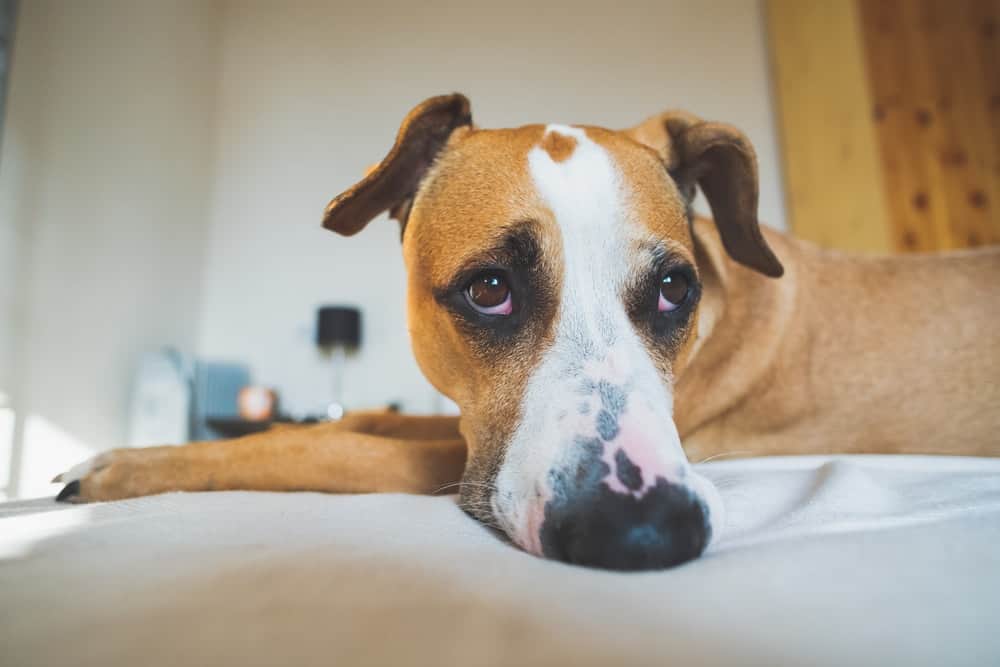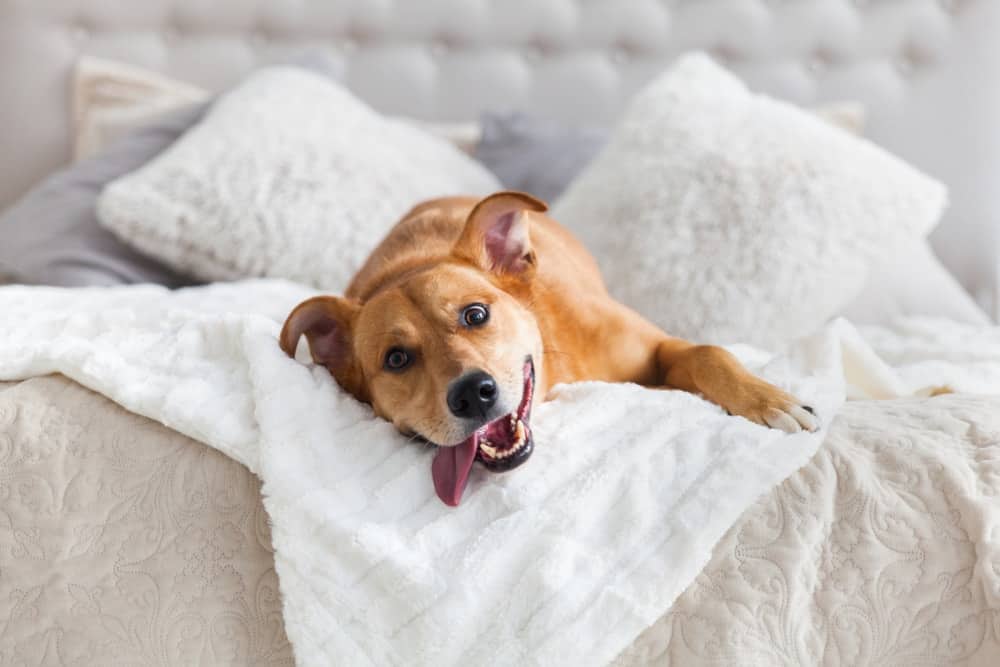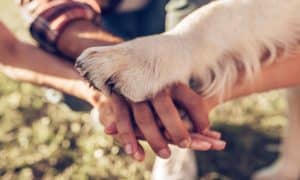“This post contains affiliate links, and I will be compensated if you make a purchase after clicking on my links.”
It’s no secret: our dogs love us. Something your furry friend has probably loved about a quarantined world is having you at home more than usual. Whether you started working from home or simply stayed in more, your dog has most likely developed quite the attachment to spending more time with you. But what happens when that time together stops?

With the world reopening, many dogs will be left at home again. After getting used to having their humans near, the transition back will not be an easy one for our furry friends. We may see dogs increasingly become destructive, loud, or even have some “accidents” indoors. Separation anxiety in dogs, an issue expected to rise as we return to work and other engagements away from home, can truly affect your loved ones.
Does my dog have separation anxiety?
How can you know if your dog is having a hard time readjusting? Here are some signs common with separation anxiety in dogs:
● Barking. While dogs can bark, of course, at many things, any barking or whining without an external reason should grab your attention. Barking is the most vocal way a dog can communicate, and if it seems your dog is not barking at anything in particular by themselves, this could be your dog trying to let you know something is wrong.
● Accidents. Another way a dog may show something’s wrong is a change in how they use the “bathroom.” If your dog is used to always going outside or using pads and has suddenly started to break away from that, there may be an underlying problem. Your dog may have developed a fear that has become associated with those needs, such as thinking you won’t be home in time to let them out.
● Destruction. Coming home to chewed up shoes, dug up couch cushions, or scratches on your door? Your furry friend may be channeling anxious or stressed energy into destroying items in your home. Keep in mind some of these items may be strongly associated with your smell, which is why your pup may be letting out their energy onto them first.
● Movement. When filled with nervous energy, your dog may start to pace in a pattern at your home when you’re not there. You may see a pathway your dog has been doing over and over again on rugs or carpets, or even on furniture. You may also see signs your dog is trying to escape, such as through scratches or chewing at your windows and doors.
How can you help?

First of all, if your dog is showing signs of separation anxiety, don’t feel too guilty. Humans and dogs alike had trouble adjusting to the “new normal” during quarantine; it’s okay if your dog (or you!) is having trouble getting back into previous routines. There are ways you can make this easier for your furry friend.
1. Routine. Before you started being home so often, your dog was used to you being away. Build up back to that habit. If your dog shows signs of distress when you pick up your keys to leave, go ahead and ease into it.
Grab your keys and walk out as if you were leaving, and make sure to include sound-based acts such as locking your front door and walking away. Leave for short periods of time at first, slowly lengthening that time as the days go by. Let your dog re-learn that you will be back!
2. Exercise. If your dog has a lot of energy inside, whether it be out of stress or not, a good idea would be to give your canine buddy some extra exercise. A little bit of extra care every day can help relieve some pressure and tire your pooch out enough to push away those destructive tendencies. Plus, it can add to some quality time between the two of you, which can help calm the anxiety that comes with you being away. Having you home while working on a computer and having you home playing fetch are two very different scenarios for your pup.
3. Toys. Try to give something for your dog to enjoy each time you leave your home. Toys focused on long-term enjoyment, such as cones that can hold treats inside for your dog to dig and chew for, can help distract your pup. Leaving something in your home with your scent, such as a recently used blanket or piece of clothing, to give your dog a connection to you while you’re away.
4. Supplements. If your dog is showing some very destructive tendencies, your favorite canine may be needing some extra help. Supplements can aid in calming your dog while you’re away, giving your dog an even better chance at getting used to the new routine more quickly.
Getting used to a new normal can be hard for all of us, but these steps can help your dog get through that tough time more easily. Keeping our dogs happy and healthy during these times is of the utmost importance. Trying these steps one by one can help narrow down the reason behind your dog’s anxiety. If you’re looking for some extra help, one company really dedicating themselves to help reduce stress in dogs is Valida Pets. Deciding to use human-grade quality supplements can be a way to give you peace of mind when it comes to leaving your furry friends at home and make the transition even easier for you. Some dogs could benefit greatly with a mix of methods; for more information on supplements or tips on how to help your pup readjust, visit validapets.com for more!
About Valida Pets
www.validapets.com or Instagram @validapets
Worldwide we dogs face a big problem. You leave us. Often it’s for a long day at work. Sometimes you take us to the sitters while you go on vacation. Either way we are sad, sometimes depressed, and with the anxiety of not knowing when you’ll be back. We know you see it in our eyes and hear it in our whimpers.
We created Valida Pets because if our furry family members could talk we believe they might have shared that story with us. We couldn’t find a solution or company we believed in so we had to create a company that could make a change. Our core belief is that ‘Every Dog Should Have a Happy Life’. Our best in class supplement was created to help your dog. Our socially responsible company was created to not only help your dog but to help save the lives of stray puppies worldwide.



















jenna williams
Jul 20, 2020 at 5:37 pm
Start by leaving the house more frequently, increasing the duration each time. Do so even if we’re going places we would normally bring our dog, like to the park, to the home improvement store, to get coffee, or to eat out on a restaurant’s patio. This will help your pet get used to the idea of you being away, and that you always come back.